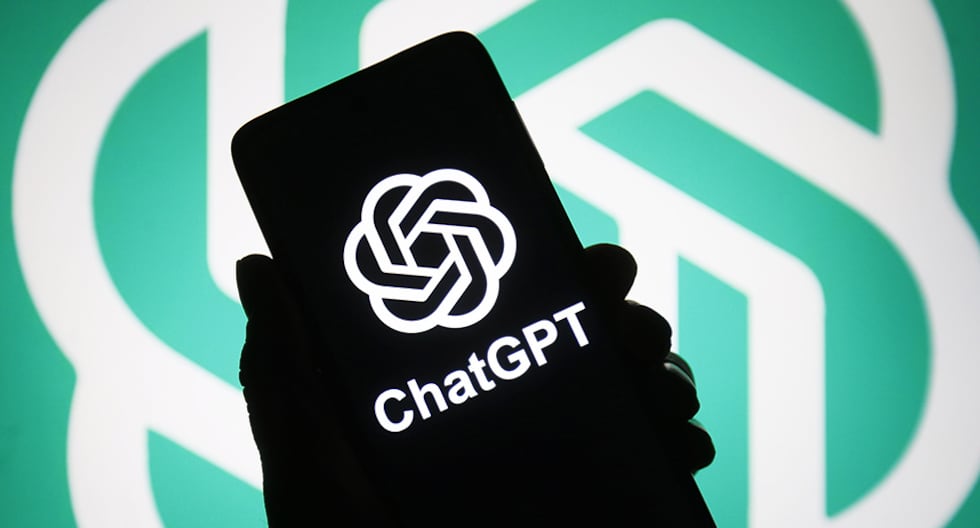Assessing Apple's Position In The AI Landscape

Table of Contents
Apple's AI Infrastructure: Hardware and Software Synergy
Apple's approach to AI is deeply rooted in the synergy between its hardware and software. This tightly integrated ecosystem provides a significant competitive advantage, allowing for optimized performance and enhanced user experiences.
The Power of Apple Silicon
The introduction of Apple Silicon—the M1, M2, and future generations of custom-designed chips—has revolutionized Apple's AI capabilities. These chips are specifically engineered to accelerate AI processing and machine learning tasks, offering significant improvements over previous generations.
- Improved Performance: Apple Silicon delivers dramatically faster processing speeds for AI-related operations, leading to quicker response times and more efficient algorithms.
- Energy Efficiency Benefits: The chips are highly energy-efficient, maximizing battery life on devices like iPhones and iPads, even when running demanding AI applications.
- On-Device Processing Capabilities: Many AI tasks, like image recognition and natural language processing, can now be handled directly on the device, enhancing privacy and reducing reliance on cloud services.
For example, the improved Neural Engine in Apple Silicon enables significantly faster processing for features like live text transcription in the Camera app and enhanced computational photography capabilities.
The iOS and macOS Ecosystem
Apple's operating systems, iOS and macOS, are integral to its AI strategy. They seamlessly integrate AI features into the user experience, often invisibly enhancing usability and personalization.
- Siri Improvements: Siri, Apple's virtual assistant, continues to evolve, leveraging advancements in natural language processing to offer more accurate and contextually relevant responses.
- Personalized Recommendations: AI algorithms power personalized recommendations in the App Store, Apple Music, and other Apple services, tailoring suggestions to individual user preferences.
- On-Device Image Processing: Features like portrait mode, smart HDR, and advanced image stabilization rely heavily on AI and machine learning, enhancing the quality of photos and videos.
- Privacy Considerations: Apple prioritizes user privacy, ensuring that AI processing, whenever possible, occurs on-device, minimizing the sharing of personal data with external servers.
- Core ML: This framework empowers developers to integrate machine learning models directly into their apps, fostering innovation and expanding the range of AI-powered experiences available to users.
Apple's AI Applications: From Siri to Beyond
Apple's AI is not limited to Siri; it permeates numerous aspects of its product ecosystem.
Siri's Evolution and Limitations
Siri has come a long way since its inception, showing significant improvements in natural language processing and understanding. However, it still lags behind competitors like Google Assistant and Amazon Alexa in certain areas.
- Improved Natural Language Processing: Siri now handles more complex queries and commands more effectively.
- Areas Needing Improvement: Siri occasionally struggles with nuanced requests, contextual understanding, and multi-step instructions. Its integration with third-party services also requires further development.
- Integration with Other Apple Services: Siri's effectiveness is enhanced through its close integration with other Apple services such as Calendar, Maps, and Messages.
AI-Powered Features Across Apple Products
AI silently powers many features across the Apple product line, significantly improving user experience.
- Image Recognition in Photos: The Photos app uses AI for facial recognition, object detection, and scene classification, making it easier to search and organize photo libraries.
- Predictive Text in Keyboards: The keyboard uses AI to predict words and phrases, making typing faster and more efficient.
- Health and Fitness Tracking: The Apple Watch and Health app leverage AI for activity tracking, heart rate monitoring, and fall detection, providing valuable insights into users' health and well-being.
- Augmented Reality Applications: Apple's ARKit framework leverages AI for object recognition and scene understanding, enabling developers to create innovative AR experiences.
Future AI Applications
Apple's future AI endeavors are ripe with potential.
- Advanced Driver-Assistance Systems (ADAS) in Vehicles: Apple's rumored autonomous driving project could revolutionize the automotive industry.
- More Sophisticated Health Monitoring: AI could lead to more accurate and proactive health monitoring capabilities through the Apple Watch and other devices.
- Personalized Education Tools: AI-powered tools could personalize learning experiences, adapting to individual student needs and learning styles.
Apple's Competitive Position in the AI Market
Apple occupies a unique position in the AI market, characterized by both strengths and weaknesses.
Strengths
Apple enjoys several advantages in the AI landscape.
- Strong Hardware: Apple's custom silicon provides a significant performance and efficiency advantage.
- Large User Base: Apple’s massive user base provides a wealth of data for training and improving AI models.
- Emphasis on Privacy: Apple's focus on privacy resonates with users concerned about data security.
- Brand Loyalty: Apple's loyal customer base ensures a receptive audience for new AI-powered products and features.
- Robust Ecosystem: The tightly integrated Apple ecosystem facilitates seamless integration of AI across devices and services.
Weaknesses
Despite its strengths, Apple faces challenges in the competitive AI market.
- Less Public AI Research: Compared to Google and others, Apple publishes less research on its AI advancements.
- Reliance on Acquisition: Apple has relied on acquisitions to bolster its AI capabilities, sometimes lacking the organic development of key technologies.
- Potential for Improved AI Assistant Capabilities: Siri's capabilities still lag behind some competitors.
- Competition from Google, Amazon, and Microsoft: Apple faces stiff competition from established AI players with extensive resources and expertise.
Strategic Partnerships and Acquisitions
Apple strategically employs partnerships and acquisitions to enhance its AI capabilities. For example, its acquisition of companies like Turi and Xnor.ai has strengthened its machine learning expertise. Future partnerships and acquisitions will likely play a crucial role in shaping Apple's AI trajectory.
Conclusion: Assessing Apple's AI Future and Call to Action
Apple's AI strategy is built upon a foundation of hardware-software synergy, prioritizing user privacy and a seamless user experience. While Apple's public AI research is less prolific than some competitors, its strong hardware, vast user base, and tightly controlled ecosystem provide a powerful platform for future AI innovation. Apple's future role in the AI landscape will likely be defined by its ability to further enhance Siri's capabilities, leverage its ecosystem to deliver personalized and privacy-respecting AI features, and expand into new AI-driven markets, such as autonomous vehicles.
What are your thoughts on Apple's AI strategy? Do you believe Apple’s emphasis on privacy will be a long-term advantage or disadvantage in the competitive AI market? Share your predictions for Apple's future advancements in Artificial Intelligence in the comments below!

Featured Posts
-
 Nnpc Petrol Prices The Role Of Dangotes Refinery
May 10, 2025
Nnpc Petrol Prices The Role Of Dangotes Refinery
May 10, 2025 -
 100 Days Of Trump Analyzing The Effects On Elon Musks Fortune
May 10, 2025
100 Days Of Trump Analyzing The Effects On Elon Musks Fortune
May 10, 2025 -
 Open Ai And Chat Gpt The Ftc Investigation And The Future Of Ai
May 10, 2025
Open Ai And Chat Gpt The Ftc Investigation And The Future Of Ai
May 10, 2025 -
 Brian Brobbey Physical Prowess Poses Europa League Threat
May 10, 2025
Brian Brobbey Physical Prowess Poses Europa League Threat
May 10, 2025 -
 Stock Market Update Sensex Nifty Gains Adani Ports Eternal Performance
May 10, 2025
Stock Market Update Sensex Nifty Gains Adani Ports Eternal Performance
May 10, 2025
